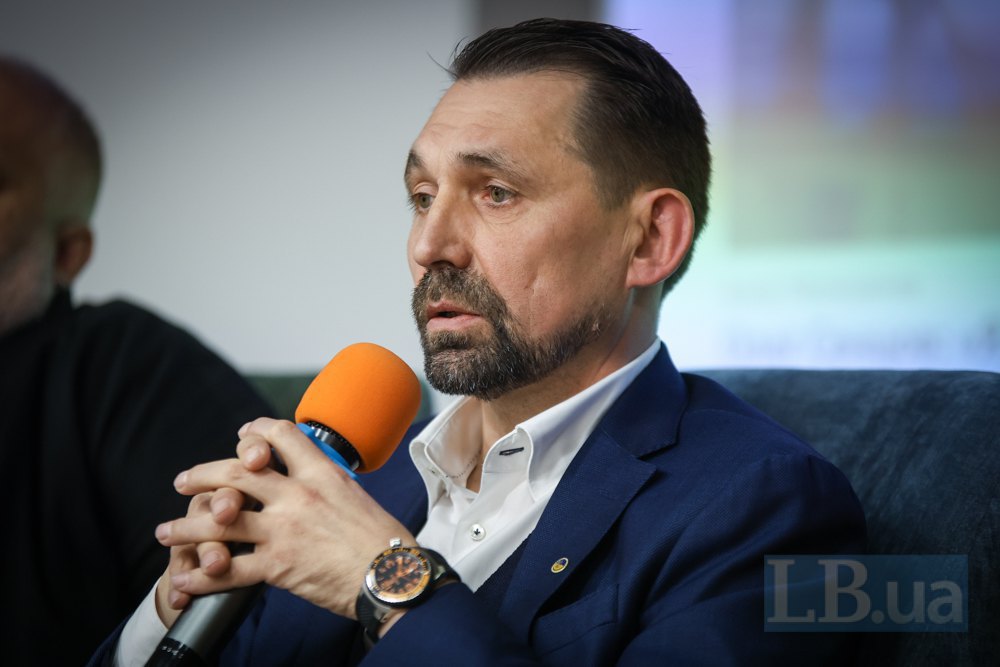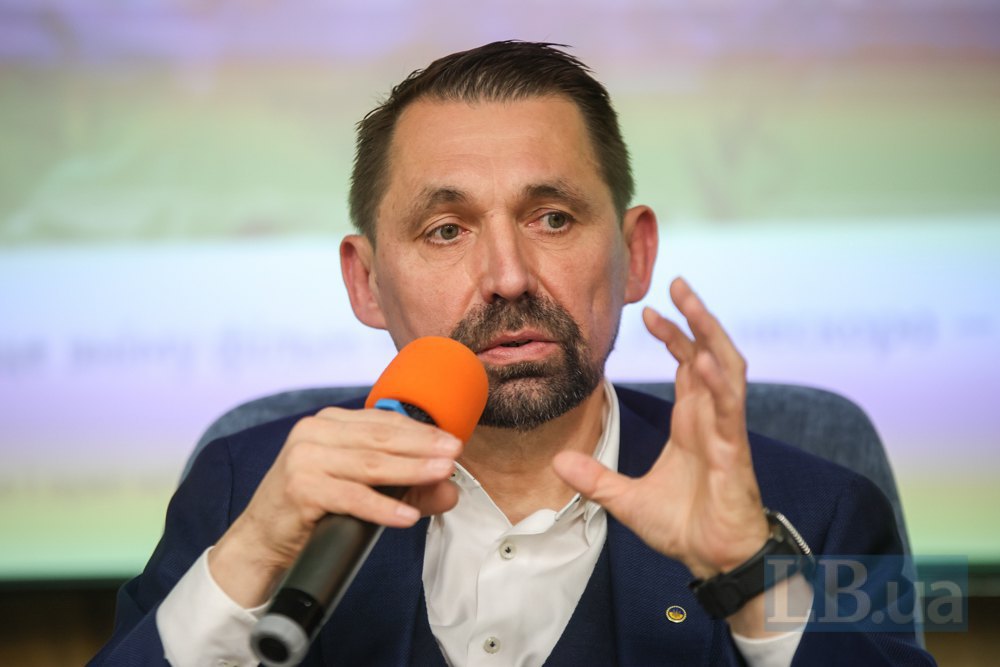
"Putin, in his delusions and distorted historical constructions, claimed that someone created Ukraine and its identity. In fact, the Russian army has become convinced that Ukraine is a real phenomenon, a part of European culture," the minister said. And one of the tasks of his department is: "to clearly communicate that we are not somewhere between the West and Russia, we are one of those who created a great democratic Europe."
The second task is to create the preconditions and convince our partners and allies to help us win the war as much as possible.
"Without stopping Putin, Europe will also lose. The whole democratic world will lose. These are the main two tasks that underpin the activities of this ministry: to assert the Ukrainian identity and to convince target audiences of the need to support Ukraine. I hope that with the final formation of the team, together with the courageous Ukrainian society, we will achieve this. This is not about countering disinformation, but about strategic communication. This is much broader and represents a proactive rather than reactive approach. To be a leader in the information space, we need to shape messages, not catch up with what Putin says, breaking down our identity," the minister said.
According to Mykola Tochytskyy, three factors should contribute to this: preservation of cultural heritage, creation of new high-quality cultural products and their distribution in the world.
Preservation of cultural heritage
According to the minister, Ukraine should collect as much as possible of everything that has not yet been destroyed by the Russians and protect it for future generations.
"Without preservation, we will not have what we have. It's not about money, it's about the eternal, because it belongs to Ukraine and Ukrainians. You and I are not eternal, but the heritage can be eternal if we take the right approach to its preservation," the minister said.
In particular, this includes the preservation of historic buildings, which are being actively destroyed by developers.
"Heritage is something that belongs to the state. That is why I am against decentralisation and the transfer to the local level of issues where there should be appropriate areas, buffer zones, etc. After all, there are clearly defined standards... Unfortunately, this is a complicated issue, because both UNESCO and the European Union have claims regarding the preservation of our heritage," Tochytskyy said. He reminded that if a number of directives of the European Council, the European Union, decisions of the European Parliament, and UNESCO conventions on the protection of cultural heritage are not implemented, Ukraine can forget about membership in the European Union.
In general, the minister said, the ministry is working with European colleagues on several strategies to take care of cultural heritage.
"One of them is to overcome the risks to the preservation of cultural and historical heritage.
...The second element is that in order to realise the tasks in this area, we need to investigate what is wrong, how and why. What are the gaps in our knowledge and capacities and what technologies are lacking to achieve our goals. What should the studios and educational processes be like, what should they be called, what skills and competences should the experts in this field have."
The third element is what each of our partners is ready and able to do, not only in terms of training and transferring the necessary skills and competencies to us, but also in terms of basic digitisation, preservation, transportation, and shipping: what creates the conditions for preserving artefacts and values here and now.
"And the last element - the partnership between the state and private business - must be clearly defined. The boundaries and framework of this cooperation must be established. The boundaries are how much, to whom and for what purpose. How to encourage the commercialisation of cultural objects and processes and at the same time comply with the requirements of the state. But this requires the adoption of appropriate legislation aimed at fine-tuning public-private partnerships," said the head of the MCSC.
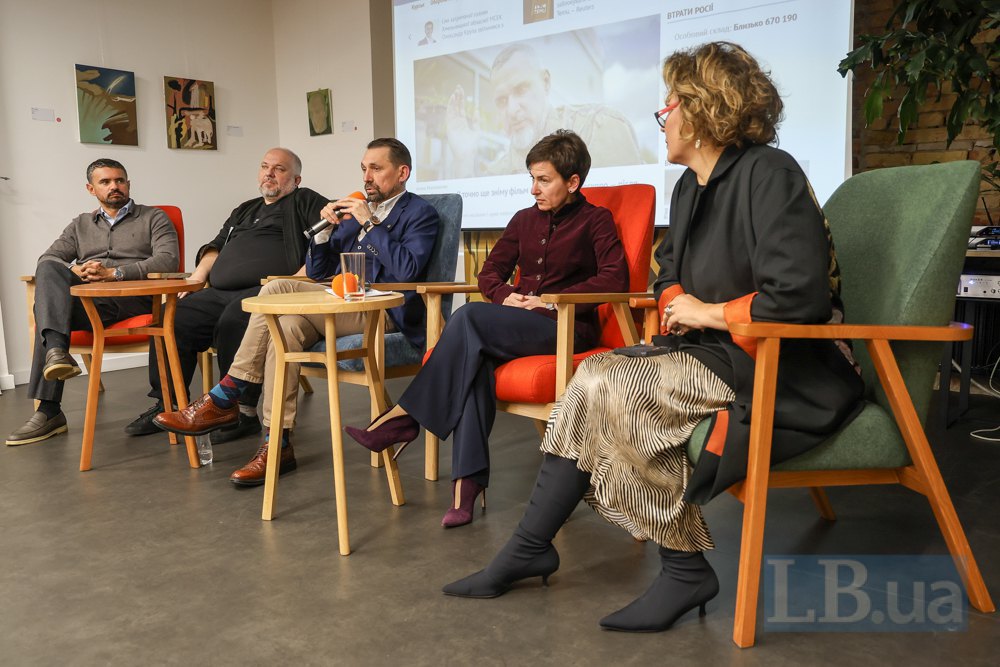
The experience of Canadians, French and British will be used to prepare the necessary bills, Tochytskyy said. The strategies are expected to be presented in the spring.
Creating new products
The MCSC is ready to create conditions for "good, correct meanings in the cultural environment" and communicate them.
"It is not the ministry that creates cultural products and meanings, but Ukrainian society, Ukrainian artists and art. We have to be sure that it is a high-quality cultural product that will do everything to make Ukrainians, Italians, Germans and French people want to read, know and discover Ukraine, and more so in the Ukrainian language," the minister said.
He added that today the MCSC has development strategies for various areas of the cultural sector, from libraries to theatre. And cultural figures must do everything to ensure that art develops, because both the nation and the Armed Forces need it.
According to Tochytskyy, it is very important that the cultural sector responds quickly to the present and reflects new heroes for different age groups in its products.
For his part, the minister promised full openness and constant communication.
Promotion of Ukraine
One of the MCSC's tasks is to create the conditions to spread Ukrainian culture abroad, as the Koshyts Choir did at the request of the then head of the Ukrainian state, Symon Petlyura, the minister said.
"It was a kind of ingenious product invented by Petlyura and his government. Already being, by the way, practically in another capital. A serious decision... The choir was supposed to help Ukrainian diplomacy gain recognition and necessary political decisions from foreign governments. It started with European countries and ended in America, and only because Ukraine had already lost its statehood at that time, it is difficult for us to assess what an outstanding role the promotion of the Ukrainian cultural product played in the formation of Ukrainian statehood a hundred years ago," Mykola Tochytskyy noted.
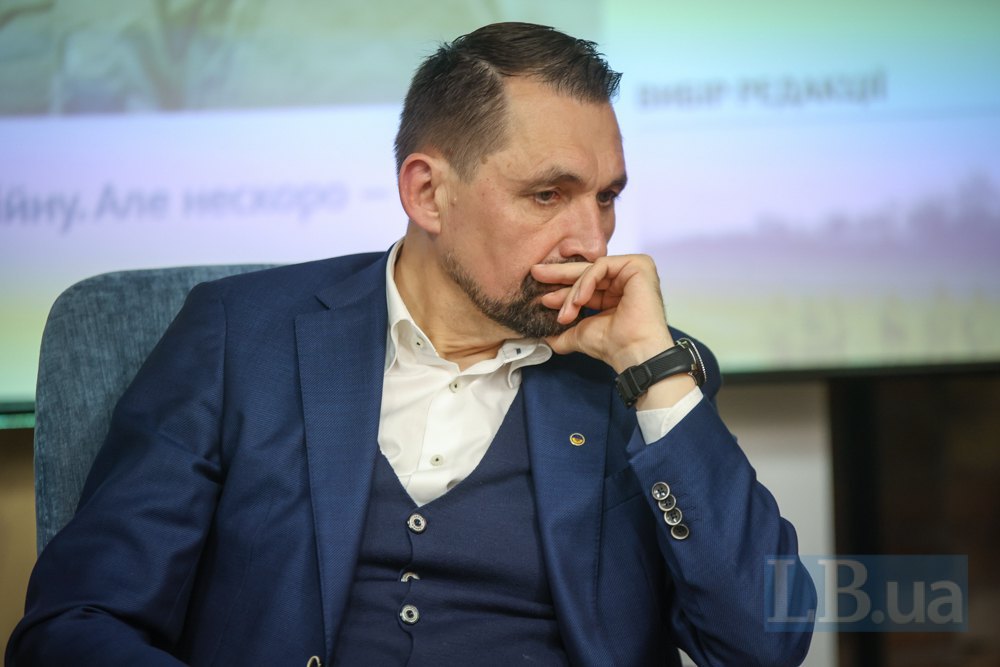
He added that Ukrainian books and other cultural products should be in every home abroad where there are Ukrainians. And this work is ongoing and has already yielded results.
"In the UK, for example, before the start of the full-scale war, the Foreign Office had 15 people studying Russian. Now they have one person studying Russian and 15 studying Ukrainian. So there is a demand, there is a need. Several Ukrainian libraries have been opened in Brussels," the minister said. Tochytskyy also noted the important role of local communities in this - when there is a demand, implementation is easier.
In addition, the minister spoke in detail about the Naples Initiative, a cultural analogue of Ramstein.
"It's about culture and strategic communications. A meeting of the G7 culture ministers was recently held in Naples, and it's no secret that these countries are the main investors in our victory. The appearance of the Minister of Culture of Ukraine was important not only in terms of formulating narratives, how to expand the Vilnius Call to Action (a plan to restore Ukraine's cultural sector), which has already been joined by more than 40 countries, into concrete measures, but also in terms of communication, because culture is an important component for these societies to continue to believe in us and help their governments invest in Ukraine's victory," Tochytskyy explained.
According to him, it is important "to form unity in the cultural environments of states, to strengthen their societies through culture in support of the Ukrainian nation and the Ukrainian Armed Forces." The initiative presented in Naples should strengthen the coordination of international efforts to support the Ukrainian cultural sector - its preservation, protection and recovery from the effects of the war.
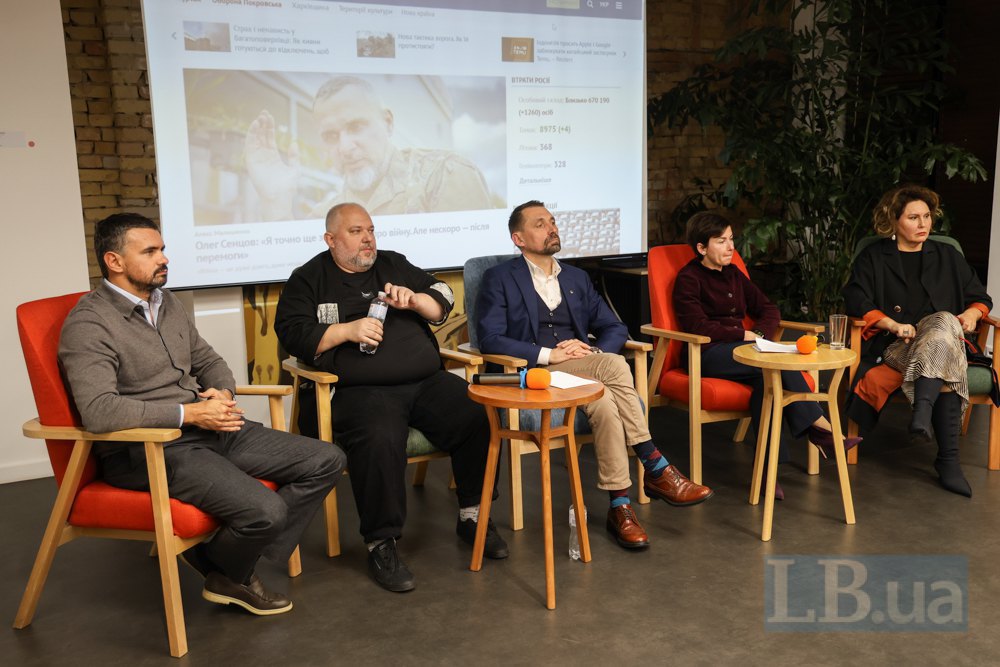
"There is a decision of the Parliamentary Assembly of the Council of Europe adopted in June, and before that, in February 2024, there was a decision of the European Parliament on the tasks set by the aggressor, which is the destruction of Ukrainian identity. You and I [cultural workers] must direct all our efforts to ensure that our partners do not get tired of helping Ukraine. Because if Ukrainians get tired, the war will come to them. And it is already there, invisible, through various kinds of disinformation and hybrid operations," Tochytskyy added.
The minister also commented on the travelling of cultural figures abroad, noting that he reviews 100 requests a day. Since there is no database that determines which artists can travel, he has to search for information about the people who submit requests, and it takes a lot of time. A proposal has now been submitted to the Cabinet of Ministers to approve a list of required documents, deadlines, etc.
"There is another statistic: out of every five [artists who have travelled abroad], one does not return on time and sometimes stays there. Sometimes they don't even get to the concert or performance they were going to. And these are also very important things," said the head of the MCSC and added that everyone is personally responsible for their actions, especially during the war.
In general, the ministry takes an open position and aims to "help create new meanings, convey them to the main audience and preserve what the aggressor has not taken away," the minister concluded.
